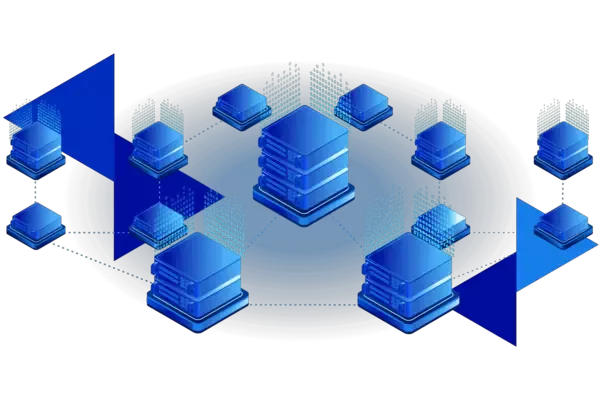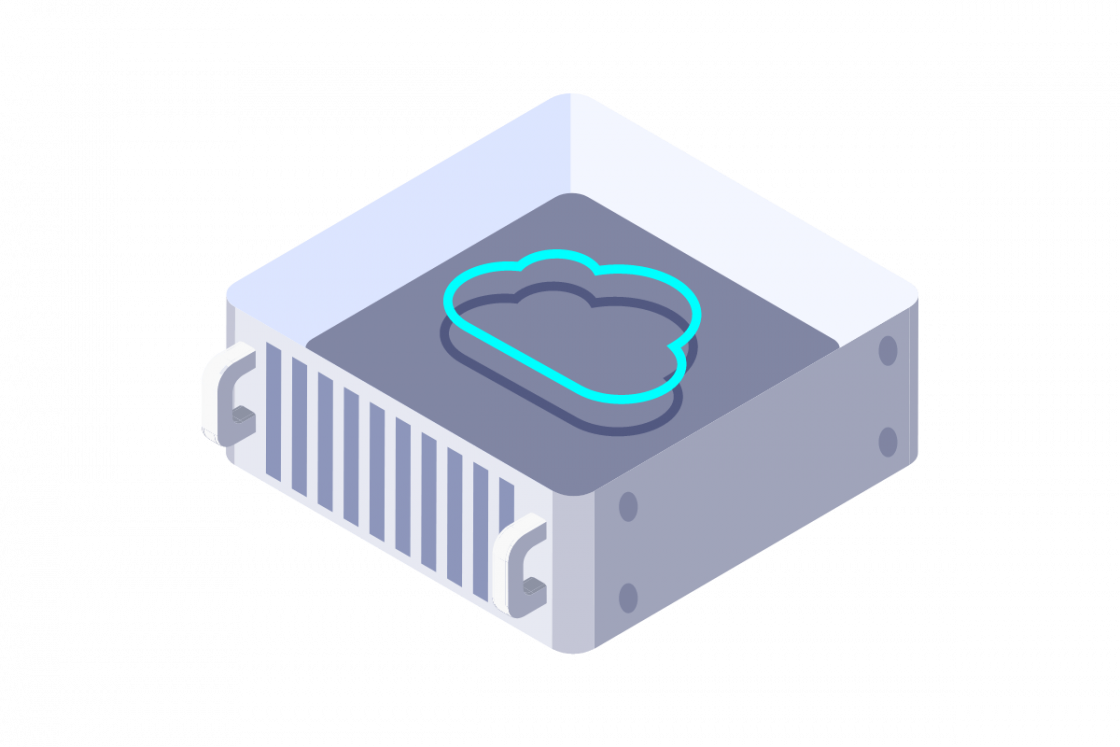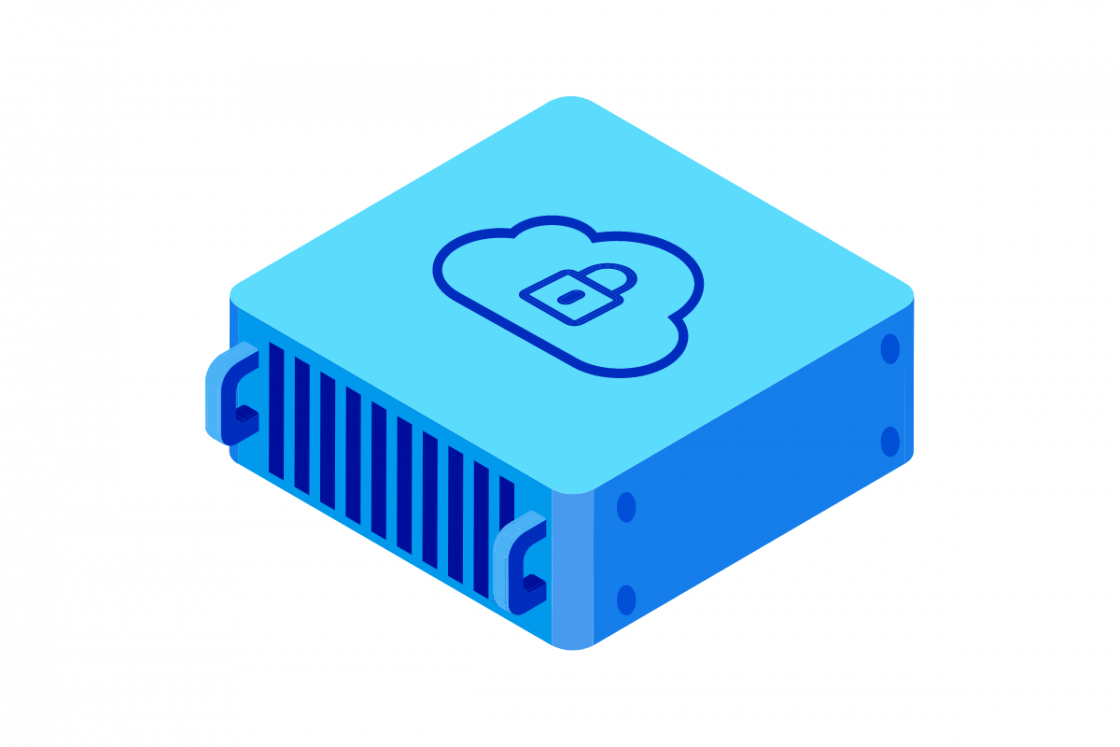What is an AI server?
Unlike traditional servers designed for general-purpose computing tasks such as hosting websites or managing databases, AI servers are specialised systems engineered to handle the specific computational demands of AI workloads.
These supercomputing systems are designed to execute complex algorithms, process massive datasets, and support applications such as machine learning, deep learning, and natural language processing with remarkable speed and efficiency.
AI servers represent a significant leap forward in computing infrastructure. They are equipped with next-generation hardware and software optimised for tasks that require AI-specific computing.

This includes training artificial intelligence models to recognise patterns in data and making real-time predictions or decisions based on new inputs. The rise of AI servers has enabled organisations to harness the power of artificial intelligence, turning raw data into actionable insights and automating processes that were once unimaginable.
As AI continues to evolve, these servers are becoming the backbone of modern technological advancements, supporting everything from personalised recommendations on streaming platforms to life-saving medical diagnoses.
How AI Servers Work
AI servers operate by leveraging a combination of powerful hardware and optimised software to manage the intensive computational requirements of AI tasks.
At their core, these servers are designed to process vast amounts of data at lightning-fast speeds, enabling the training and deployment of AI models.
The process begins with data ingestion, where large datasets are fed into the system for analysis and processing. During training, the server uses algorithms to identify patterns and adjust model parameters to improve accuracy. Once trained, the server can perform inference, applying the learned knowledge to new data for real-time predictions or decisions.
The architecture of an AI server is distinct from that of a traditional server. It prioritises parallel processing capabilities to handle multiple tasks simultaneously, a necessity for AI workloads that often involve billions of calculations.
GPU vs CPU in AI Servers
One of the fundamental differences in AI server design lies in the choice between GPUs and CPUs as a powerful compute unit. CPUs are general-purpose processors adept at handling sequential tasks quickly.
They excel in managing a variety of computations and are essential for overall server management. However, when it comes to the parallel processing required for AI workloads, CPUs fall short due to their limited core count and lower memory bandwidth, which is around 50GB/s in modern systems.
GPUs, on the other hand, are specifically designed for parallel processing and deep learning, boasting thousands of cores that can handle multiple data points simultaneously. This makes them ideal for training deep neural machine learning networks, where tasks like matrix operations are commonplace. Top GPUs offer memory bandwidths up to 7.8 TB/s, a critical advantage for data-intensive AI applications.
Role of AI Accelerators and Memory
Beyond GPUs and CPUs, AI accelerators such as TPUs, field-programmable gate arrays (FPGAs), and application-specific integrated circuits (ASICs) play a vital role in enhancing AI server performance.
These hardware accelerators are tailored for specific AI tasks, optimising speed and efficiency. For instance, TPUs are designed for machine learning workloads, providing massive acceleration for tensor operations. FPGAs and ASICs, with their customizable architectures, allow for fine-tuned performance in specialised applications, though they require careful memory planning to maximise bandwidth.
Memory optimisation is equally critical in AI servers. AI workloads demand substantial memory to handle large datasets and complex models. High-capacity RAM, often 64GB or more, ensures that data can be accessed quickly during processing, preventing bottlenecks.
Benefits of AI Servers
AI servers offer a multitude of advantages that make them indispensable for organisations leveraging artificial intelligence in either private cloud or public clouds.
Another significant advantage of AI solutions is the ability to deliver personalised experiences. AI servers power recommendation systems that tailor content, products, or services to individual preferences, enhancing user satisfaction.
Dedicated AI servers provide distinct advantages, particularly for organizations seeking robust and controlled environments for their artificial intelligence workloads, whether in private or public clouds. Unlike general AI benefits, these advantages stem directly from the specialized nature of the hardware and infrastructure.
One of the foremost benefits is enhanced security and confidentiality. Dedicated AI servers ensure that your sensitive data and proprietary AI models are isolated from other users' data. This reduces the risk of breaches and unauthorized access, which is critical for industries handling confidential information or intellectual property.
Furthermore, dedicated servers offer guaranteed resources. This means you have exclusive access to the server's processing power (CPUs, GPUs, TPUs), memory, and storage. This eliminates the "noisy neighbor" problem often encountered in shared environments, where the performance of your AI tasks can be impacted by other users' demands. With dedicated resources, you get consistent and predictable performance, ensuring your AI models train and deploy efficiently without unexpected slowdowns.
The ability to use your own software and customization is another significant advantage. Dedicated AI servers provide the flexibility to install and configure specific operating systems, libraries, frameworks, and tools tailored precisely to your AI development and deployment needs. This level of customization is invaluable for optimizing performance, integrating with existing systems, and experimenting with cutting-edge AI technologies without limitations.
Use Cases of AI Servers
AI servers are transforming industries by enabling a wide range of applications that leverage artificial intelligence. Their ability to process complex data and run sophisticated algorithms makes them invaluable in various domains. From healthcare to entertainment, AI servers are driving progress by solving problems that require immense high performance computing power and precision.
Natural Language Processing (NLP)
Natural Language Processing is a key area where AI servers excel. NLP involves developing models that understand and generate human language, powering applications like customer service chatbots that resolve user queries and financial sentiment analysis tools that monitor market trends.
AI servers handle the intensive training for these models, processing vast amounts of text to improve language comprehension, enabling, for instance, a medical AI to transcribe doctor-patient conversations accurately or a legal AI to summarize complex legal documents efficiently.
Computer Vision and Image Recognition
In the realm of computer vision, AI public cloud servers play a crucial role in tasks such as image recognition and object detection. These applications are widely used, for instance, in healthcare where AI servers analyze MRI scans to detect early signs of tumors with high precision, or in manufacturing, where they identify microscopic defects on a production line in real-time, ensuring quality control. They also support autonomous drone inspections of infrastructure, spotting potential issues on bridges or power lines.
Autonomous Systems and Robotics
AI servers are crucial in developing autonomous systems and robotics, where real-time decision-making is paramount. For example, autonomous vehicles rely on AI servers to process live sensor data and make split-second decisions to navigate complex city traffic safely. In robotics, AI servers train models that enable industrial robots to perform intricate assembly tasks with precision, or even assist surgeons during delicate operations, enhancing accuracy and reducing human error..
Key Features of a Good AI Server
A high-quality AI server is defined by several critical features that ensure it can meet the demands of AI workloads. Foremost among these is powerful hardware, including GPUs or TPUs for parallel processing, robust CPUs for general computations, and high-capacity RAM to manage large datasets.
Fast storage solutions, such as NVMe SSDs, are also essential to minimise latency during data access. Scalability is another vital feature, allowing the server to adapt to varying workloads, from small experiments to massive training tasks involving millions of calculations.
Custom AI frameworks are a hallmark of a good AI server, streamlining the design, training, and deployment of models while optimising hardware interaction. These frameworks ensure that the server can efficiently utilise its resources, enhancing performance. Additionally, a good AI server offers flexibility in deployment, supporting both on-premise and cloud-based configurations to suit different organisational needs. Security features, such as data encryption and adherence to industry standards, are crucial for protecting sensitive information processed by AI models.
AI Server vs Traditional Server
The distinction between AI servers and traditional servers lies in their design and purpose. Traditional servers are designed for general-purpose tasks, such as hosting websites, managing email, or storing data. They typically rely on CPUs for processing and are optimised for sequential tasks with moderate computational demands. In contrast, AI servers are engineered for high-performance computing, focusing on parallel processing to handle the complex calculations required for AI workloads.
Choosing the Right AI Server for Your Workload
Selecting an AI dedicated server requires careful consideration of the specific needs and goals of your AI projects. Factors such as budget, workload type, and scalability needs must be weighed to ensure optimal performance and return on investment. The correct server should align with the computational demands of your tasks, whether they involve training large models or deploying real-time inference applications, and provide the flexibility to grow with your organisation.
Deep Learning vs Training vs Inference
Understanding the differences between deep learning, training, and inference is crucial when choosing an AI server. Deep learning, a subset of machine learning, involves neural networks with multiple layers and requires significant computational power for training on large datasets.
Training is the process of teaching a model to recognise patterns by adjusting its parameters, a resource-intensive task often performed on GPU dedicated server clusters. Inference, by contrast, applies the trained model to new data for predictions, requiring less computational power but usually demanding low latency for real-time applications.
Servers for training prioritise raw processing power, while those for inference may focus on efficiency and speed, sometimes using edge devices or CPUs for smaller models.
On-Premise vs Cloud-Based AI Servers
Another key decision is whether to deploy AI servers on-premise or in the cloud. On-premise servers offer full control over data, ensuring compliance with strict regulations, and allow for tailored customisation.
However, they come with high upfront costs and scalability limitations, requiring significant investment in hardware and maintenance. Cloud-based AI servers, conversely, provide near-infinite scalability and cost efficiency through pay-as-you-go pricing, with providers handling infrastructure management. They are ideal for startups or organisations with variable workloads, but may pose data security risks and potential vendor lock-in. Hybrid approaches, combining both, can balance control and flexibility depending on specific needs.
OVHcloud and AI servers

OVHcloud Public Cloud Computing
Key features of our cloud computing include self-service, elasticity, metered billing, and broad network access. Benefits encompass flexibility, rapid deployment, cost control, scalability, robust security, and location freedom. OVHcloud provides various cloud models (IaaS, PaaS, SaaS) and deployment options (public, private, hybrid, multi-cloud), emphasising their role in AI integration for data processing and cost efficiency.

OVHcloud Bare Metal Dedicated Servers
Offer Key advantages, including rapid 120-second delivery, unlimited traffic, scalability, and compliance with security standards such as ISO/IEC 27001. OVHcloud emphasises performance, availability, and transparency, with additional features like anti-DDoS protection and a private vRack network. These servers support use cases such as virtualisation, e-commerce, and business applications.

OVHcloud GPU Dedicated Servers
Benefits include enhanced efficiency, scalability, full control, and simplified IT management. OVHcloud offers competitive pricing, global infrastructure, a sustainability focus, and 24/7 expert support. These servers stand out for their ability to handle complex computations, providing a significant performance boost over regular CPU-based servers.